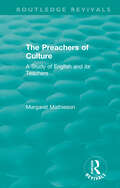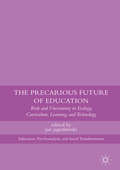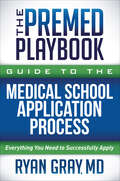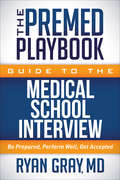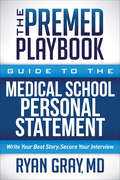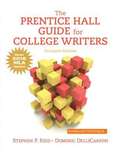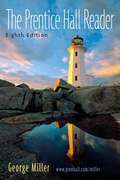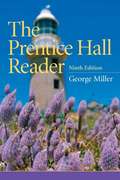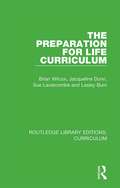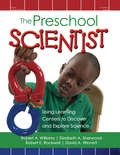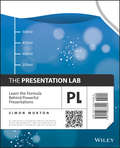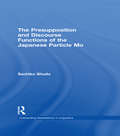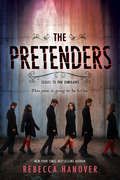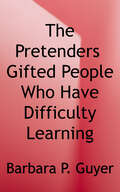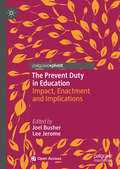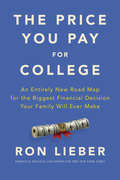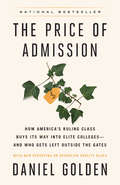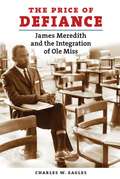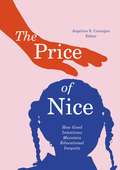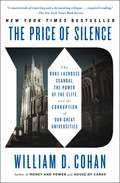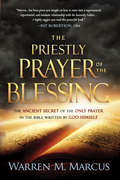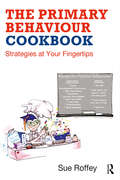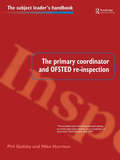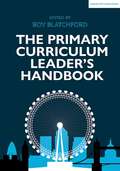- Table View
- List View
The Preachers of Culture: A Study of English and its Teachers (Routledge Revivals)
by Margaret MathiesonPublished in 1975, Margaret Mathieson has drawn on her experience both in schools and in the training of English teachers to relate the discussions and writings of the previous two centuries to the debate, probably livelier than ever before, among English practitioners about the role of their subject. Of all subjects ‘English' can be the most stimulating and also the most problematic. In order to assess the continual discussion and controversy about English, its nature, purpose and place in the curriculum, an understanding of its development as a subject and its entry into the teaching timetable is invaluable. For over a hundred and fifty years educators have been making different claims for English as a subject in school and higher education. This book contains a careful, clear examination of the conflicting views of these 'preachers of culture' on the four main activities within English – literature, creativity, discrimination and classroom discussion. These preachers were, in Matthew Arnold's words, to have 'a hard time of it' as English struggled to establish itself; at every stage of the subject's growth urgent demands have been made for teachers with exceptional qualities to undertake the heavy responsibilities of English in the classroom, and it can be seen from this study that an over-abundance of advice often contributed to the dilemmas and tensions among the teachers themselves and between English and other subjects. The final section of the book is concerned less with making recommendations than with drawing conclusions from the evidence of the past. It shows that generations of writers on English teaching, from Culture and Anarchy to Stepney Words, provide vital insights into the state of the subject today.
The Precarious Future of Education: Risk and Uncertainty in Ecology, Curriculum, Learning, and Technology (Education, Psychoanalysis, and Social Transformation)
by Jan JagodzinskiThis volume examines the challenges weighing on the future of education in the face of globalization in the twenty-first century. Bringing together eleven authors who explore the paradox of an “after” to the future of education, each chapter in this book targets three important areas: ecology as understood in the broader framework of globalization and pedagogy; curriculum concerns which impact learning; and the pervasiveness of technology in education today.
The Premed Playbook Guide to the Medical School Application Process: Everything You Need to Successfully Apply
by Ryan GrayThe fourth installment of The Premed Playbook series brings together all of the wisdom of helping thousands of students through the medical school application process.
The Premed Playbook Guide to the Medical School Interview: Be Prepared, Perform Well, Get Accepted (The\premed Playbook Ser.)
by Ryan Gray“A must-have for every future doctor’s collection. Great advice, comprehensive, and to the point. Dr. Gray breaks it down, play by play.” —Sujay Kansagra, MD, author of The Medical School ManualThe Premed Playbook Guide to the Medical School Interview is the only book needed to prepare premed students for their medical school interviews. Through interviews with Admissions Committee members and others, Dr. Gray has compiled the most comprehensive book on this subject. Premed students want to know what to expect, but more importantly they need to see examples of what successful applicants have done. The Premed Playbook not only gives them close to six hundred potential interview questions, it also gives them real answers and feedback from interview sessions that Dr. Gray has held with students.“This book touches on every aspect of the interview from applying, during the interview and things to do/not to do after the interview. I highly recommend this book for every student to read and have available for reference during the medical school interview season.” —Antonio J. Webb, MD, orthopedic resident surgeon, motivational speaker, and author of Overcoming the Odds“He challenges the reader to examine their strengths and weaknesses and gives them a blueprint on how to put their best foot forward. His advice is real-world and complied by many interviewers, including myself, who have years of experience interviewing medical school applicants. I highly recommend this book as a fundamental preparation tool for the application process.” —Gregory M. Polites, MD, Associate Professor of Emergency Medicine, Chairman of the Central Subcommittee on Admissions, Washington University School of Medicine
The Premed Playbook: Guide to the Medical School Personal Statement (The\premed Playbook Ser.)
by Dr. Ryan GrayThe Premed Playbook: Guide to the Medical School Personal Statement helps guide students in crafting their stories for the medical school Admission Committees. It's not only a collection of essays from students who got into top schools, but is a showcase of essays that started badly and were honed to tell great stories. Ryan Gray, MD shares the stories of students who likely didn&’t have a shot, but ultimately succeed, in part because of the advice laid out in The Premed Playbook: Guide to the Medical School Personal Statement. They had to fight their way into medical school—and told a great story to do it.
The Prentice Hall Guide For College Writers: New 2016 MLA Updates
by Stephen Reid Dominic DelliCarpiniFor courses in first-year Composition and Rhetoric. <P><P> This version of The Prentice Hall Guide for College Writers has been updated to reflect the 11th Edition of the MLA Handbook (April 2016)* <P><P> A scaffolded writing guide with writer’s purpose at the core <P><P> With new forms of delivery and expression changing the expectations of writers and audiences, our expectations of writing continue to evolve — and so must today’s writers. The Prentice Hall Guide for College Writers, Eleventh Edition helps students navigate this territory by fostering rhetorical awareness and asking them to consider purpose, audience, and genre every time they write. Each project chapter guides students with a series of scaffolded assignments, aligned with the WPA Recommended Outcomes for First-year Writing. The rhetorical emphasis, practical step-by-step approach, and predictable structure have made this guide a highly teachable favorite.
The Prentice Hall Reader (8th edition)
by George MillerThis best-selling collection features ten chapters focusing on the classic methods of narration, description, argument, and persuasion. It contains classic and contemporary essays about popular culture, along with advice about how to read analytically, and how to write persuasively and effectively. Each chapter is organized clearly and effectively, enabling the reader to not only understand each essay and but also what the writer was trying to convey. An excellent reference work as well as an interesting and thoughtful collection of essays.
The Prentice Hall Reader (9th edition)
by George E. MillerThis best-selling collection features ten chapters focusing on the classic methods of narration, description, argument, and persuasion. It contains classic and contemporary essays about popular culture, along with advice about how to read analytically, and how to write persuasively and effectively. Fifteen new essays, including timely topics such as Wikipedia, Facebook, and Iraq. Each chapter is organized clearly and effectively, enabling the reader to not only understand each essay and but also what the writer was trying to convey.
The Preparation for Life Curriculum (Routledge Library Editions: Curriculum #36)
by Brian Wilcox Jacqueline Dunn Sue Lavercombe Lesley BurnOriginally published in 1984. Many schools are faced with the problem of what to teach the large numbers of below average pupils who are never likely to pass any GCE or CSE examination. These pupils are often troublesome, bored and eager to get out of school into the real world of work. At this time, many schools were planning a new curriculum for these pupils - taking account of limited abilities and concentrating on teaching skills and knowledge which will be useful when they have left school. This book, based on extensive original research, considers this problem and puts forward suggestions for how the curriculum might be reformed to cater for these pupils. It discusses both what the content of the reformed curriculum might be and how the process might be implemented to involve those teachers who teach the pupils concerned.
The Preschool Scientist: Using Learning Centers to Discover and Explore Science
by Robert A. Williams David A. Winnett Robert E. Rockwell Elizabeth A. SherwoodChildren learn best through hands-on exploration, observation, and discovery. With more than 100 activities, The Preschool Scientist gives children the opportunity to actively engage, experiment, create, and discover the exciting world of science. Using a unique inquiry-based approach, these activities explore science through learning centers, integrating this important subject into the entire classroom. Each of the activities has "Keep it Simple" and "Add a Challenge" sections so teachers can adjust the difficulty to their unique classrooms. Organized by theme, chapters include: &8226; Alike and Different &8226; Exploring Motion &8226; Exploring Change&8226; Exploring Tools &8226; Working with Water&8226; Light and Shadows &8226; Getting to Know Our World With this hands-on approach, children will have fun developing problem-solving skills while becoming comfortable with exploring their world.
The Presentation Lab
by Simon MortonRevealing the difference between great slides and great presentationsBased on a proven process from one of the world's most prominent presentation consultancy and design firms,The Presentation Lab challenges everything you thought you knew about creating and delivering engaging business presentations. Author Simon Morton shares his unique Presentation Optimization methodology and takes readers on a journey of evolution and revolution to discover what makes an effective presentation (and you may be surprised to know that great design is the last thing you need to worry about).Using practical tips and drawing on Simon's experiences working with companies around the globe, The Presentation Lab will help everyone who ever needs to present by revealing what works, what doesn't and, more importantly, why. The Presentation Lab tackles "Death by PowerPoint" head on by dispelling presentation myths, examining the latest presentation innovations, exploring new concepts for audience engagement and delivery and challenging to status quo of today's business presentation landscape.
The Presidential Mystery (Cinnamon Lake Mysteries #8)
by Dandi Daley MackallDuring the excitement of her school's mock election, as she is serving as campaign manager for her friends Sunny and Quentin, Molly tries to discover who is framing her for horrible practical jokes connected to the campaign.
The Presupposition and Discourse Functions of the Japanese Particle Mo (Outstanding Dissertations in Linguistics)
by Sachiko ShudoFirst Published in 2002. Routledge is an imprint of Taylor & Francis, an informa company.
The Pretenders (The Similars #2)
by Rebecca HanoverIn this sequel and thrilling conclusion to The Similars duology, Emma must figure out who she really is, decide between two boys with the same face, and stop a dangerous plan based on revenge. Emma is still reeling from the events of her junior year at Darkwood. Not only is her best friend, Oliver, shockingly alive, but the boy she loves, his genetic copy, Levi, is still on the island where he grew up, stranded with his deranged guardian.More importantly, she is grappling with who she really is. Emma can't accept the hard truths she learned last year and refuses to share her secrets with anyone, isolating herself from the Similars and Ollie. But when more of the Similars' creator's plot is revealed, Emma and her friends will have to try to stop him from putting a plan into motion that could destroy everyone she loves.
The Pretenders: Gifted People Who Have Difficulty Learning
by Barbara P. GuyerWhat would you do if, no matter how hard you tried, you could not learn to read? Would you continue to try or would you resign yourself to pretending, for the benefit of others, that you could read? The Pretenders tell the stories of eight people who never stopped trying. From humiliation in school and the anxiety of coping with everyday life unable to read street signs and menus, to shopping, driving, and working, these people lived in a world of dashed hopes and dreams regardless of outward appearances. With help from Dr. Barbara Guyer, they discovered their learning disabilities and unlocked their true gifts.
The Prevent Duty in Education: Impact, Enactment and Implications
by Lee Jerome Joel BusherThis open access book explores the enactment, impact and implications of the Prevent Duty across a range of educational contexts. In July 2015 the UK became the first country to place a specific legal requirement on those working in education to contribute to efforts to ‘prevent people from being drawn into terrorism’. Drawing on extensive research with staff, children and young people, the editors and contributors provide new insight into how this high-profile – and highly contentious – policy has shaped educational practice in Britain today. It will be a valuable resource for researchers, policymakers and others interested in the design, implementation and on-the-ground effects of Prevent or similar programmes internationally that place education at the heart of efforts to prevent or counter violent extremism.
The Price You Pay for College: An Entirely New Road Map for the Biggest Financial Decision Your Family Will Ever Make
by Ron LieberThe hugely popular New York Times “Your Money” columnist and author of the bestselling The Opposite of Spoiled offers a deeply reported and emotionally honest approach to the biggest financial decision families will ever make: what to pay for college. Sending a teenager to a flagship state university for four years of on-campus living costs more than $100,000 in many parts of the United States. Meanwhile, many families of freshmen attending selective private colleges will spend triple—over $300,000. With the same passion, smarts, and humor that infuse his personal finance column, Ron Lieber offers a much-needed roadmap to help families navigate this difficult and often confusing journey. Lieber begins by explaining who pays what and why and how the financial aid system got so complicated. He also pulls the curtain back on merit aid, an entirely new form of discounting that most colleges now use to compete with peers.While price is essential, value is paramount. So what is worth paying extra for, and how do you know when it exists in abundance at any particular school? Is a small college better than a big one? Who actually does the teaching? Given that every college claims to have reinvented its career center, who should we actually believe? He asks the tough questions of college presidents and financial aid gatekeepers that parents don’t know (or are afraid) to ask and summarizes the research about what matters and what doesn’t.Finally, Lieber calmly walks families through the process of setting financial goals, explaining the system to their children and figuring out the right ways to save, borrow, and bargain for a better deal. The Price You Pay for College gives parents the clarity they need to make informed choices and helps restore the joy and wonder the college experience is supposed to represent.
The Price of Admission: How America's Ruling Class Buys Its Way Into Elite Colleges - And Who Gets Left Outside The Gates
by Daniel GoldenEvery spring thousands of middle-class and lower-income high-school seniors learn that they have been rejected by America's most exclusive colleges. What they may never learn is how many candidates like themselves have been passed over in favor of wealthy white students with lesser credentials--children of alumni, big donors, or celebrities. <P><P>In this explosive book, the Pulitzer Prize-winning reporter Daniel Golden argues that America, the so-called land of opportunity, is rapidly becoming an aristocracy in which America's richest families receive special access to elite higher education--enabling them to give their children even more of a head start. Based on two years of investigative reporting and hundreds of interviews with students, parents, school administrators, and admissions personnel--some of whom risked their jobs to speak to the author--The Price of Admission exposes the corrupt admissions practices that favor the wealthy, the powerful, and the famous. <P><P>In The Price of Admission, Golden names names, along with grades and test scores. He reveals how the sons of former vice president Al Gore, one-time Hollywood power broker Michael Ovitz, and Senate Majority Leader Bill Frist leapt ahead of more deserving applicants at Harvard, Brown, and Princeton. He explores favoritism at the Ivy Leagues, Duke, the University of Virginia, and Notre Dame, among other institutions. <P><P> He reveals that colleges hold Asian American students to a higher standard than whites; comply with Title IX by giving scholarships to rich women in "patrician sports" like horseback riding, squash, and crew; and repay congressmen for favors by admitting their children. He also reveals that Harvard maintains a "Z-list" for well-connected but underqualified students, who are quietly admitted on the condition that they wait a year to enroll. <P><P>The Price of Admission explodes the myth of an American meritocracy--the belief that no matter what your background, if you are smart and diligent enough, you will have access to the nation's most elite universities. It is must reading not only for parents and students with a personal stake in college admissions, but also for those disturbed by the growing divide between ordinary and privileged Americans.
The Price of Defiance
by Charles W. EaglesWhen James Meredith enrolled as the first African American student at the University of Mississippi in 1962, the resulting riots produced more casualties than any other clash of the civil rights era. Eagles shows that the violence resulted from the university's and the state's long defiance of the civil rights movement and federal law. Ultimately, the price of such behavior--the price of defiance--was not only the murderous riot that rocked the nation and almost closed the university but also the nation's enduring scorn for Ole Miss and Mississippi. Eagles paints a remarkable portrait of Meredith himself by describing his unusual family background, his personal values, and his service in the U.S. Air Force, all of which prepared him for his experience at Ole Miss.
The Price of Nice: How Good Intentions Maintain Educational Inequity
by Angelina E. CastagnoHow being &“nice&” in school and university settings works to reinforce racialized, gendered, and (dis)ability-related inequities in education and society Being nice is difficult to critique. Niceness is almost always portrayed and felt as a positive quality. In schools, nice teachers are popular among students, parents, and administrators. And yet Niceness, as a distinct set of practices and discourses, is not actually good for individuals, institutions, or communities because of the way it maintains and reinforces educational inequity. In The Price of Nice, an interdisciplinary group of scholars explores Niceness in educational spaces from elementary schools through higher education to highlight how this seemingly benign quality reinforces structural inequalities. Grounded in data, personal narrative, and theory, the chapters show that Niceness, as a raced, gendered, and classed set of behaviors, functions both as a shield to save educators from having to do the hard work of dismantling inequity and as a disciplining agent for those who attempt or even consider disrupting structures and ideologies of dominance. Contributors: Sarah Abuwandi, Arizona State U; Colin Ben, U of Utah; Nicholas Bustamante, Arizona State U; Aidan/Amanda J. Charles, Northern Arizona U; Jeremiah Chin, Arizona State U; Sally Campbell Galman, U of Massachusetts; Frederick Gooding Jr., Texas Christian U; Deirdre Judge, Tufts U; Katie A. Lazdowski; Román Liera, U of Southern California; Sylvia Mac, U of La Verne; Lindsey Malcolm-Piqueux, California Institute of Technology; Giselle Martinez Negrette, U of Wisconsin–Madison; Amber Poleviyuma, Arizona State U; Alexus Richmond, Arizona State U; Frances J. Riemer, Northern Arizona U; Jessica Sierk, St. Lawrence U; Bailey B. Smolarek, U of Wisconsin–Madison; Jessica Solyom, Arizona State U; Megan Tom, Arizona State U; Sabina Vaught, U of Oklahoma; Cynthia Diana Villarreal, U of Southern California; Kristine T. Weatherston, Temple U; Joseph C. Wegwert, Northern Arizona U; Marguerite Anne Fillion Wilson, Binghamton U; Jia-Hui Stefanie Wong, Trinity College; Denise Gray Yull, Binghamton U.
The Price of Silence: The Duke Lacrosse Scandal, the Power of the Elite, and the Corruption of Our Great Universities
by William D. CohanA Duke alumnus whose work has been hailed as “authoritative” (The Washington Post), “seductively engrossing” (Chicago Tribune), “riveting” (The Economist), and “masterful” (Los Angeles Times), presents a stunning new account of the infamous Duke lacrosse team case.Despite it being front-page nationwide news, the true story of the Duke lacrosse team rape case has never been told in its entirety. It is more complex and profound than all the reporting to date would indicate. The Price of Silence is the definitive account of what happens when the most combustive forces in American culture—unbridled ambition, intellectual elitism, athletic prowess, sexual and racial bias, and absolute prosecutorial authority—collide and then explode on a powerful university campus, in the justice system, and in the media. Deeply reported and brilliantly written, The Price of Silence shines a bright light on the ever-widening gap between America’s rich and poor, and how the powerful protect themselves, even at the price of justice.
The Priestly Prayer of the Blessing: The Ancient Secret of the Only Prayer in the Bible Written by God Himself
by Warren MarcusDID YOU KNOW THAT GOD WROTE A PRAYER FOR YOU? The prayer was discovered on a silver amulet found in a tomb opposite the Temple Mount in Jerusalem. It is the oldest surviving biblical text surpassing the age of the Dead Sea Scrolls by four hundred years. It was written in the ancient Paleo-Hebrew language. Moses was told by God to have Aaron, the high priest, pray it over the children of Israel every day. By doing this, God would place His name (His very person, His holy character, His power and authority) supernaturally upon them. For forty years, as the children of Israel wandered in the wilderness, they received supernatural provision, divine health, angelic protection. And they even prospered–even their clothes and shoes never wore out (Deut. 29:5). Through intense study of the original Hebrew text, Warren M. Marcus has unearthed a far deeper and profound meaning of this divine prayer than we presently have in our Bibles. Marcus reveals the ancient secret on how to pronounce a new amplified Hebrew-to-English translation so you can experience a supernatural, intimate, and experiential relationship with your heavenly Father in a way never thought possible.
The Primary Behaviour Cookbook: Strategies at your Fingertips
by Sue RoffeyDeveloped in conjunction with practitioners and teachers, The Primary Behaviour Cookbook provides highly effective, practical strategies for responding to and resolving behavioural issues in primary classrooms. Consisting of over forty ‘recipes’, the book’s unique format enables practitioners to quickly and easily access information and advice on dealing with specific behaviours. Each ‘recipe’ details strategies and interventions for immediate application in the classroom setting, considers possible causes of the given behaviour and offers helpful approaches for responding to the child’s needs in the longer term. From disengagement to impulsivity, attention-seeking, defiance, bullying, anxiety and aggression, the book’s five sections cover a broad spectrum of behaviours falling within five broader categories: Getting things done: supporting positive student engagement and achievement Dealing with disruption: increasing motivation and skills to facilitate learning Social interactions: resolving problematic situations that occur between pupils. Emotional distress: understanding distress and developing coping strategies Behaviours of special concern: recognising behaviours associated with autism, trauma, or abuse. Underpinned by positive psychology, and emphasizing the importance of constructive relationships, communication, inclusion and child wellbeing, this is an indispensable resource for primary school teachers and assistants, behaviour support consultants, SENDCOs and educational psychologists.
The Primary Coordinator and OFSTED Re-Inspection (Subject Leaders' Handbooks)
by Mr Phil Gadsby Phil Gadsby Mr Mike Harrison Mike HarrisonSpecifically designed for busy teachers who have responsibility for coordinating a subject area within their primary school. Each volume in the series conforms to a concise style, while providing a wealth of tips, case studies and photocopiable material that teachers can use immediately. subject they are called on to co-ordinate, these books provide guidance and examples to tackle the job.; There are special volumes dedicated to dealing with OFSTED, creating whole school policy and the demands of co-ordinating several subjects within a small school.; The entire set of 16 volumes is available.
The Primary Curriculum Leader's Handbook
by Roy BlatchfordAt a time of renewed focus on the schools curriculum, Roy Blatchford has brought together some of the sharpest thinkers in education in a brilliant mixture of both practical and conceptual essays about what makes for a positive primary curriculum, 4-11. Perfectly timed to reflect the new Ofsted framework, the contributions reflect a range of thinking, planning and delivery, as schools do it now and will for the future. It is a compendium of proven practice, offering tips to less experienced/adventurous middle and senior leaders. Featuring contributions from: Katherine Benson; Kate Dethridge; Koulla Anslow; Mary Myatt; Aidan Severs; Marc Rowland; Siobhan Horisk; Claire Lotriet; Kate Atkins; Tim Coulson; David Ingham; Lilian Bell; Sean O'Regan; Colin Lofthouse; Janine Ryan; Simon Knight; Penny Slater.
